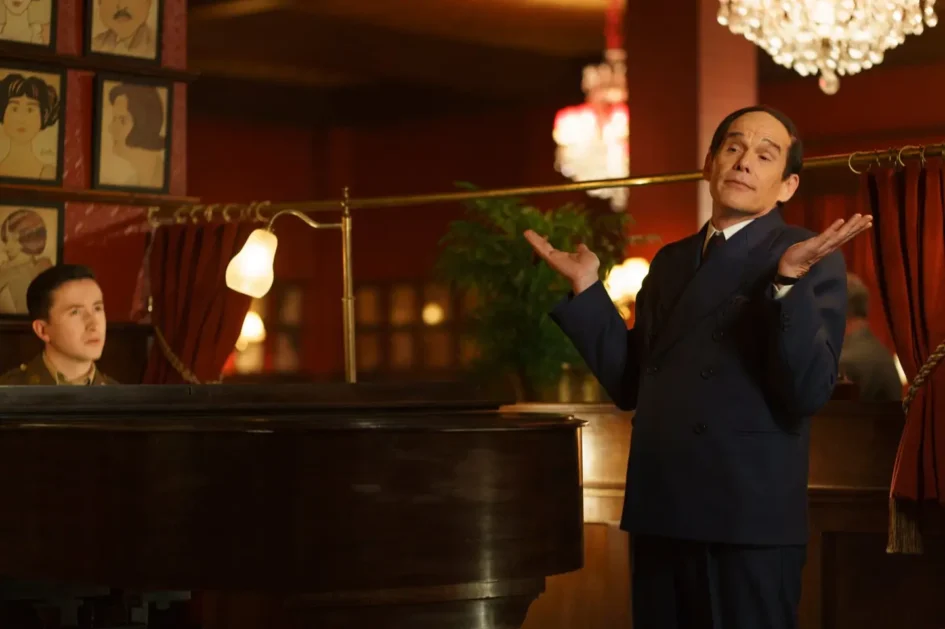Blue Moon feels like a stage play that wandered onto a film set and decided to stay awhile. Director Richard Linklater crafts a tightly contained character study centered on the brilliant yet tormented composer Lorenz Hart, played by Ethan Hawke, over the course of a single night that feels both intimate and explosive. The film explores art, regret, and the fragile balance between genius and self-destruction.
Bobby Cannavale shines as Eddie, the bartender who becomes both audience and confessor to Hart’s unraveling. It’s a deceptively simple role, one that could have faded into the background in lesser hands. Instead, Cannavale gives Eddie texture and quiet gravitas. He’s not just pouring drinks; he’s holding space for a man who can’t seem to hold himself together. His empathy feels lived-in, never performative, and it anchors the entire film.
Ethan Hawke, as Lorenz Hart, delivers a thoughtful if somewhat restrained performance. He captures the melancholy and sharp wit of the legendary lyricist, but his portrayal never quite reaches the volatility that the character’s legacy suggests. Hawke is passable here, effective and professional, but not transformative. His moments of brilliance come in the silences, where his eyes say what the dialogue doesn’t.

Margaret Qualley plays Elizabeth Weiland, and while she remains as magnetic as ever, it’s becoming difficult to see past her familiar rhythm. She seems to have reached that “Ryan Reynolds Plateau,” where her performances feel stuck in a comfortable groove. She’s good, she’s always good, but the choices feel recycled.
Andrew Scott’s brief appearance as Richard Rodgers injects the film with energy and contrast, his controlled presence highlighting Hart’s volatility. Patrick Kennedy’s understated turn as E. B. White adds a literary layer that feels perfectly at home in Linklater’s universe of reflective, talk-heavy storytelling.
The film’s single-setting structure is one of its greatest strengths. Like One Night in Miami, Blue Moon unfolds mostly within the walls of one central location, using flashbacks as quick escapes from the claustrophobia of the moment. Those glimpses of the past are welcome, but they mostly serve to reinforce how trapped these characters are, in the room, in their memories, and in their own creative legacies.
Blue Moon doesn’t always land the emotional punch it’s aiming for, and the pacing occasionally lags, but when it works, it’s quietly mesmerizing. It’s a film built on conversation and character, a story that asks you to listen more than watch.
Bobby Cannavale’s turn as Eddie makes the whole thing worth it. His warmth and subtle humor ground the film’s melancholy in something deeply human. The rest of the cast orbits him, and he never lets the center collapse.


